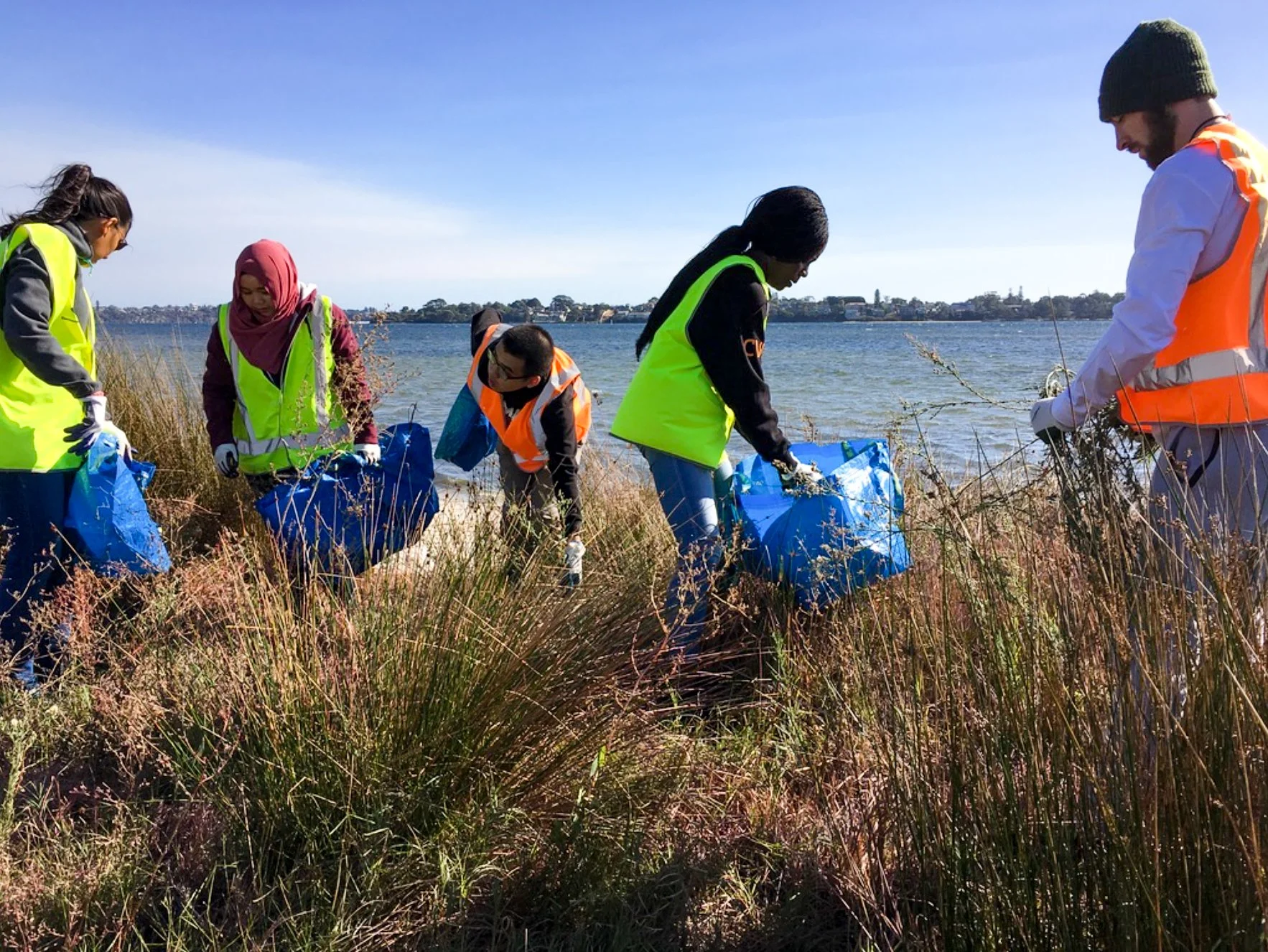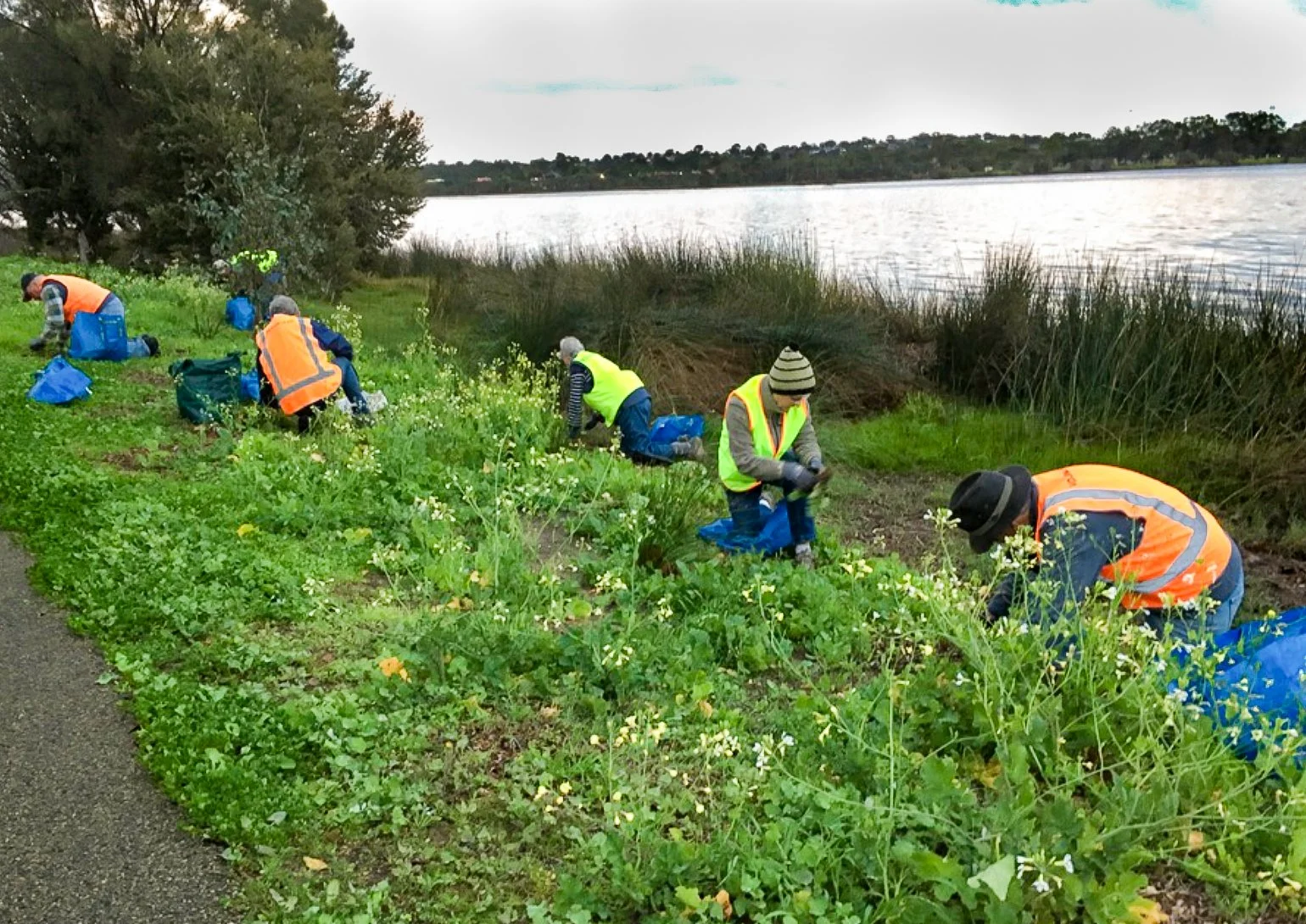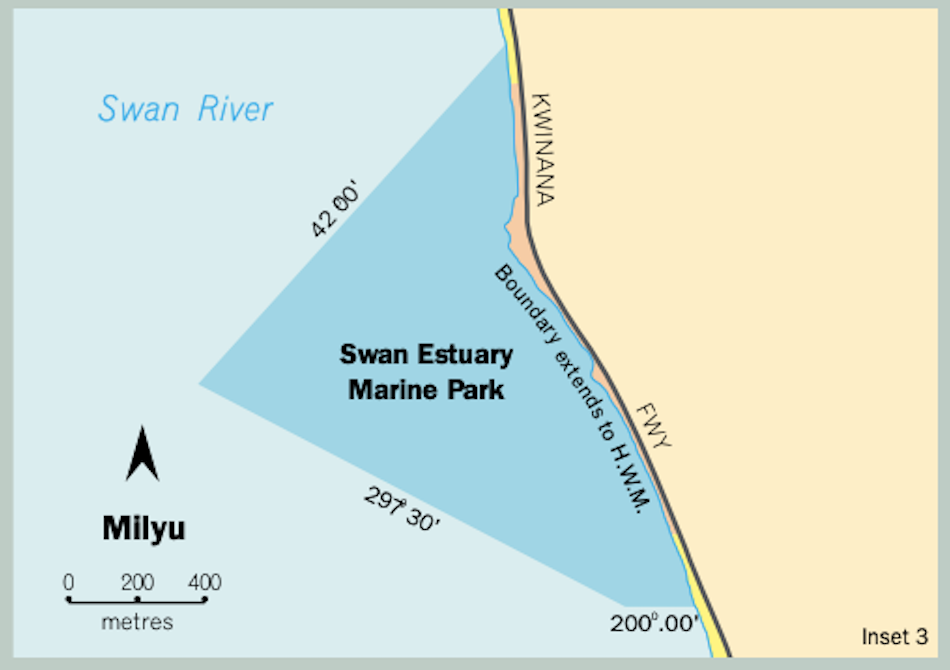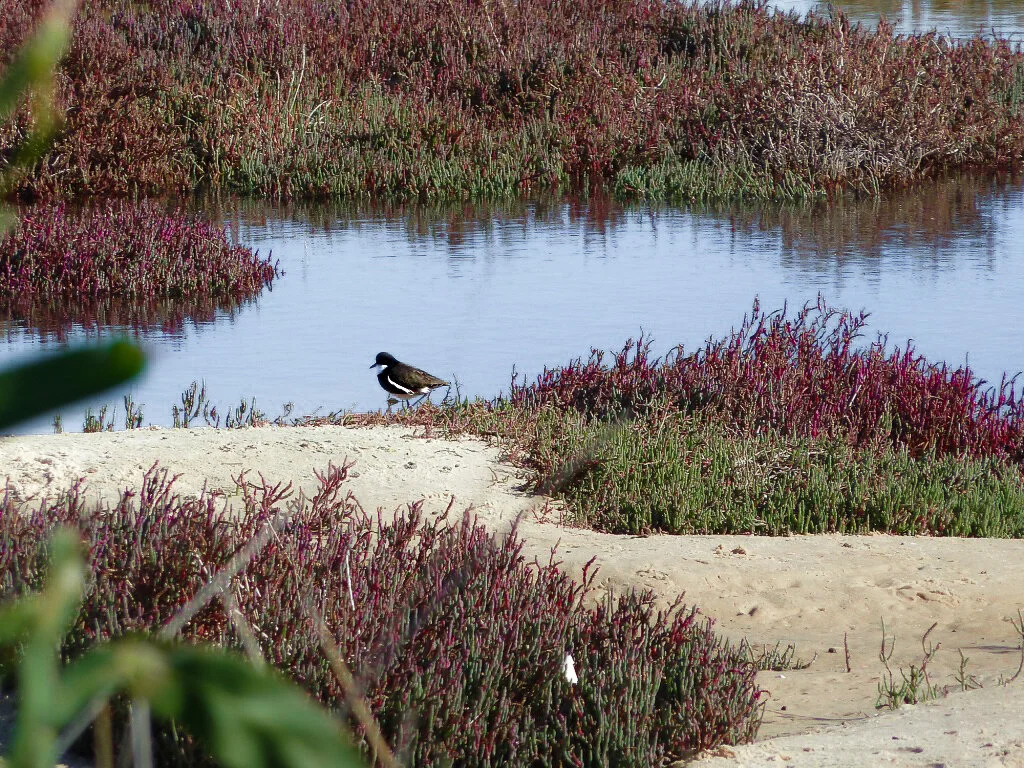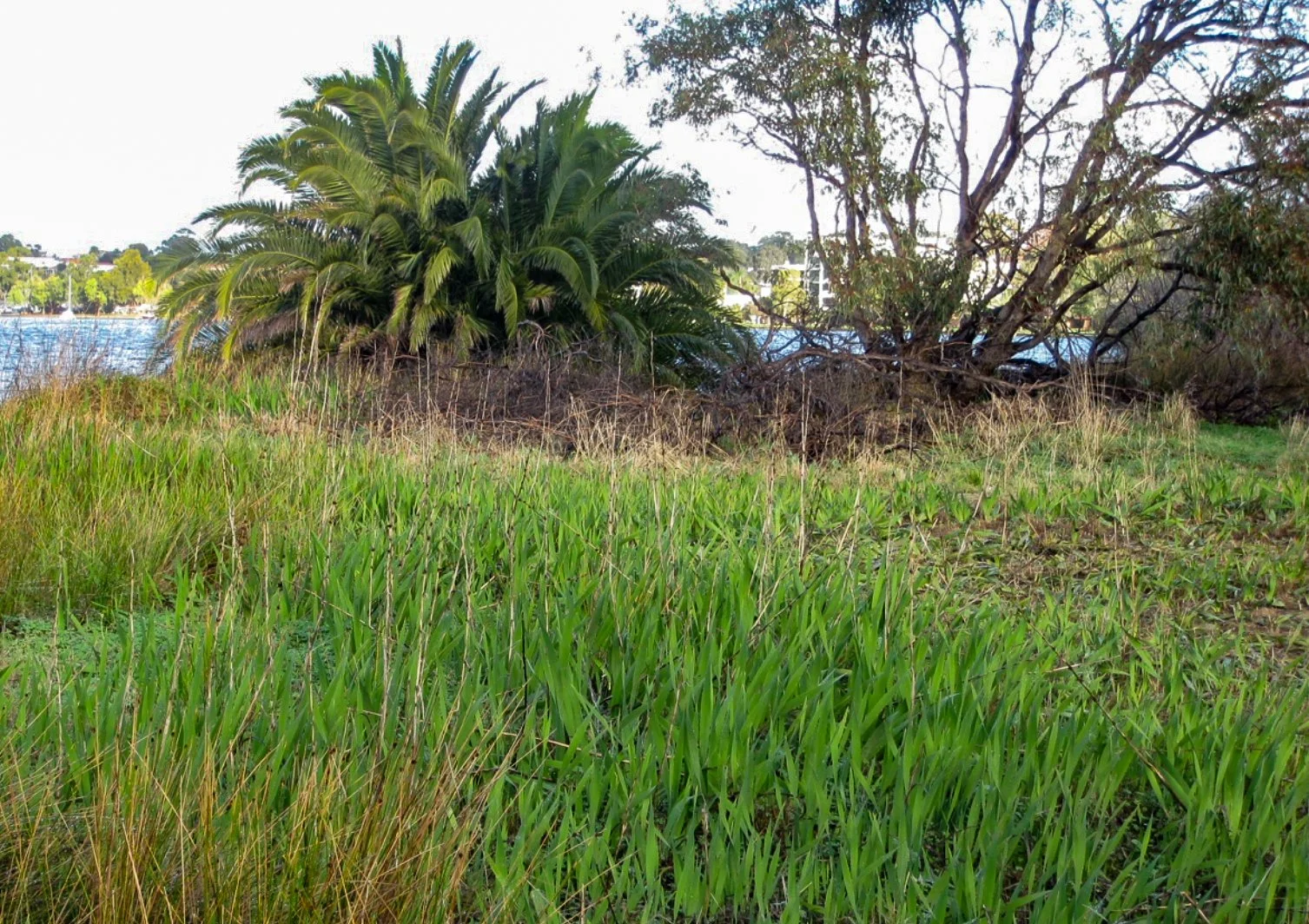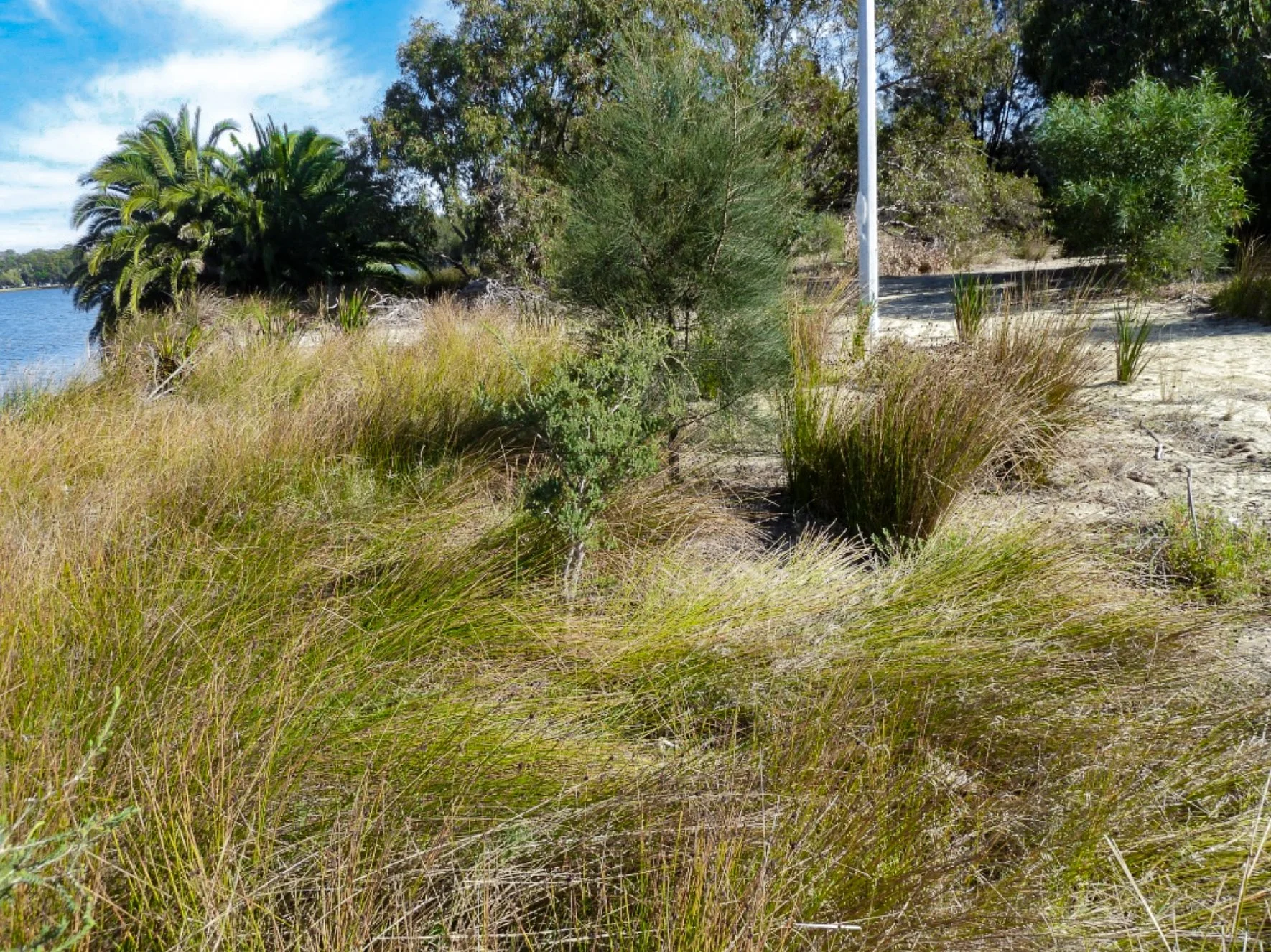Following guidelines for best-practice contained within documents such as the Department of Environment and Conservation’s (now the Department of Biodiversity, Conservation and Attractions) Swan Estuary Reserve Management Plan 1999 – 2009, volunteers from SERAG work steadily to improve the health of three very important areas that have been set aside by the wider community for the protection of flora and fauna - Milyu, Alfred Cove and Pelican Point A-Class Nature Reserves and adjacent areas of remnant bushland bordering the Marine Parks.
Strong support for and participation in our efforts reflects the Swan River Trust's research into community values:
The natural areas along the river are really important and should be retained (95.6%), and
It is acceptable for certain parts of the river foreshore to be closed off for the protection and rehabilitation of the natural environment (92.5%).
With the approval of DBCA and with the particular needs of each site in mind, projects are developed and applications for funding from various government bodies are prepared and submitted. Funding is generally used to support weed-management, for the purchase of appropriate sedges, shrubs and trees for re-vegetation, and for educative signage to inform the community of the ecological values of the areas and how to care for them. If considered necessary, we may also apply for funding for infrastructure such as viewing platforms or fencing to reduce human impact on sensitive areas.
Video of TREEmendous Tuesday volunteers weeding in the Alfred Cove Nature Reserve, by Mick O’Donnell
SERAG volunteers are joined throughout the year by university student volunteers, corporate volunteers, and community volunteers to improve the health of Milyu, Alfred Cove and Pelican Point - A-Class Nature Reserves and their adjacent remnant bushland bordering the Marine Parks.

Projects & Progress
Most grants are more than matched by an equal contribution from the recipient - in our case in volunteer labour - so effectively the worth of a grant to the environment is doubled.
Other volunteers are very welcome to join these teams, so please reach out if you can help.
SERAG’s Actions in the Community
Grants are used to foster the resilience of the reserves in the face of environmental and community pressures. As the reserves are relatively small and the pressures large, natural restoration processes are often thwarted, necessitating support through various bushcare initiatives.
Community education projects are similarly important, and over the years SERAG has organised a number of community events and displays to celebrate and encourage community knowledge and appreciation of these special areas. For example, World Migratory Bird Day is celebrated in conjunction with the Friends of Melville Bird Sanctuary along the foreshore at Attadale when migratory birds return from the northern hemisphere.
SERAG becomes conscientiously involved in community consultation processes associated with management planning and review, periodically organised by managing authorities. When the need arises, SERAG will actively engage in advocacy in support of or against a particular issue that we believe impacts on the well-being of the natural values of the Swan River Estuary. (We campaigned strongly against the construction of an artificial wave park complex on the shores of the SEMP at Alfred Cove, for example.) We also initiate and contribute to relevant research projects, such as the impact of wave action on fragile areas such as the lagoon at Pelican Point.
The support of our membership and other community volunteers is vital to the success of these initiatives. Partnerships are developed between SERAG and other environmental or community groups to support these projects. Over the past few years many hundreds of university students and corporate volunteers have joined with SERAG to contribute thousands of hours caring for these unique and beautiful parts of the Swan River Estuary.
Understanding the importance of the sites, volunteers have willingly weeded, planted, mulched, installed fencing and erosion-mitigation structures, watered new plantings over hot summers, conducted guided tours and collected litter. We recognise that this is not easy work, so we are extremely encouraged by and grateful for such support.
As part of ongoing care for each reserve, different teams of volunteers meet weekly, fortnightly or monthly to devote a few hours to removing weeds such as fleabane and wild radish, collecting litter, planting and other appropriate seasonal activities within their designated region.

Current Projects
Map via parks.dpaw.wa.gov.au
Alfred Cove
SERAG is supporting both the Department of Biodiversity, Conservation and Attractions and the City of Melville to manage and restore large sections of the Alfred Cove A-Class Reserve and adjacent areas of remnant bushland - which together form part of Bush Forever Site 331 - through a regular commitment from volunteers and through particular projects for which we have sought funding.
Community Rivercare grants since 2018 are enabling SERAG to restore:
· the narrow margin of A-Class Reserve along the Attadale foreshore. This site abuts land used once as a rubbish dump and which is now an expanse of kikuyu for exercising dogs. It is heavily degraded with a plethora of seasonal and woody weeds, including *Juncus acutis. It is also badly infested with *Carex divisa, a sedge native to Asia. Funding is enabling SERAG to undertake a multi-year program to try and eradicate this weed as it tends to smother and kill the sedges which naturally grow in the area. Funding also enables the planting of thousands of native plants which once used to thrive in the location.
· the foreshore at Tompkins Park by replacing the monoculture of Typha orientalis, which has thrived due to the freshwater from the adjacent playing fields and storm water from drains emptying into the river at this location. SERAG has planted the area with a combination of native sedges such as Juncus kraussii, Gahnia trifida and Cyperus gymnocaulos.
· eroded areas of the foreshore by planting of sedges endemic to the area and purchased with grant funding.
When this vital funding is coupled with the many hours of weeding, planting and watering contributed by volunteers, significant rehabilitation is being achieved
SERAG was pleased that a proposal to build an artificial surfing facility at Tompkins Park was rejected. However, we remain concerned that the Crown Land on which part of the proposed facility was to be built has not yet been drawn into the Conservation Estate, as has been recommended since the formation of the Swan Estuary Marine Park. As in other areas bordering the Marine Park, the riparian margin is very narrow and susceptible to erosive forces associated with climate change, with the building of walled banks around the river and with the wash from river craft. We are hopeful that the current Alfred Cove Attadale Foreshore Master Plan will result in widening and strengthening of the foreshore vegetation buffer from Attadale to Applecross. SERAG hopes that it will be achieved sooner than the 10 to 20 year time frame currently proposed.
SERAG also supports the efforts of the Friends of Melville Bird Sanctuary and undertakes monthly collections of bird data.
Projects: Before & After
Marine Park foreshore, Tompkins Park Alfred Cove. 2015 (L) and 2017 (R)
Alfred Cove A-Class Nature Reserve, Burke Drive. 2009 (L) and 2014 (R)
Marine Park foreshore, Tompkins Park East, in Applecross. Early 2018 (L) and late 2019 (R)


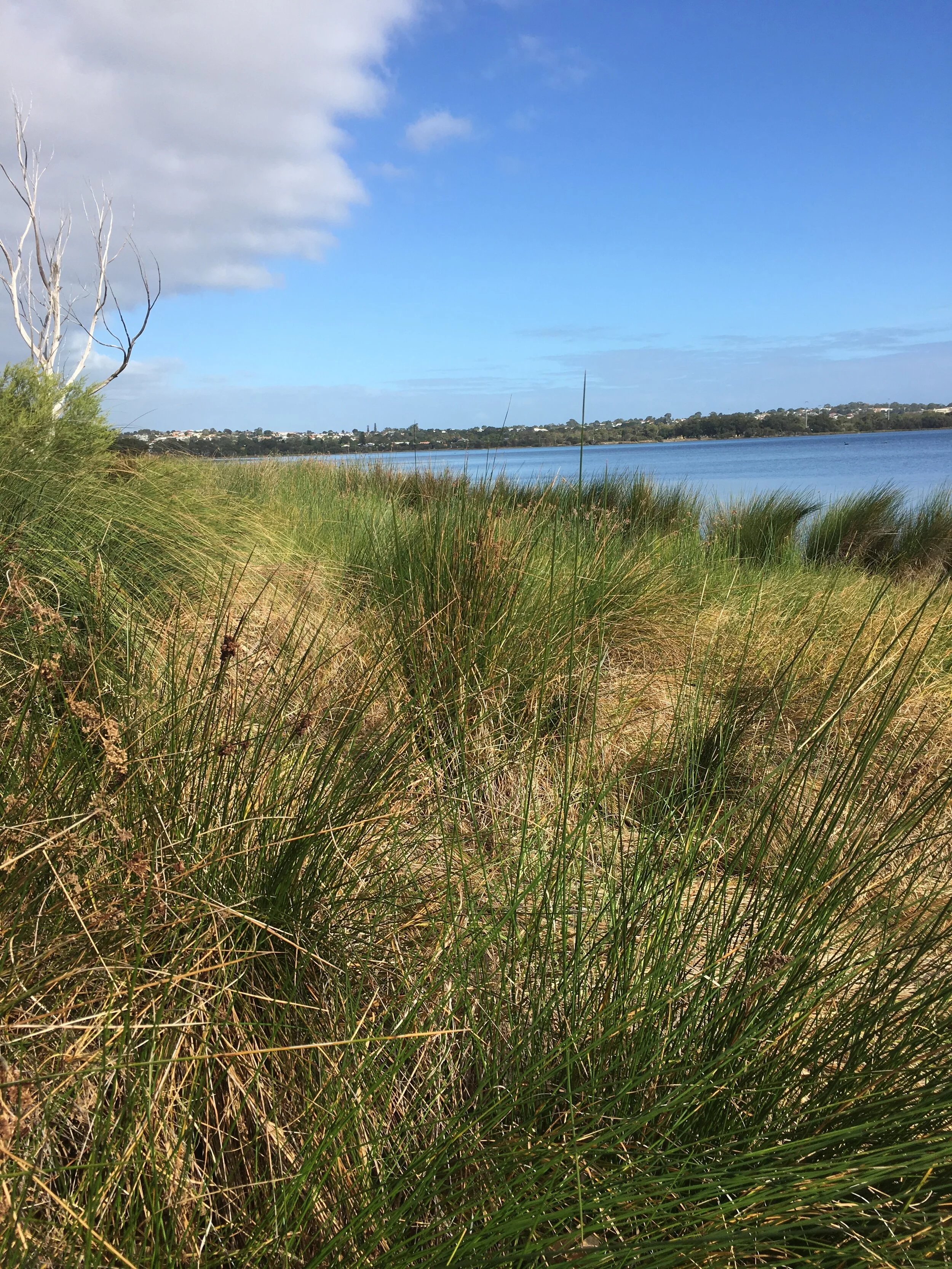


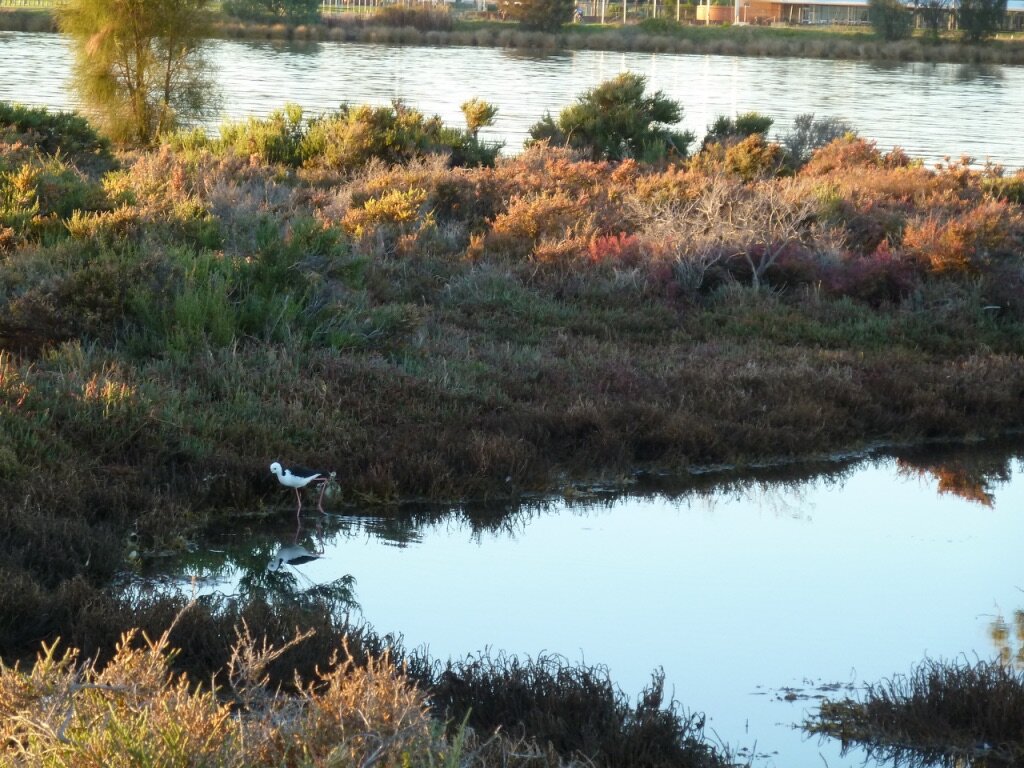



























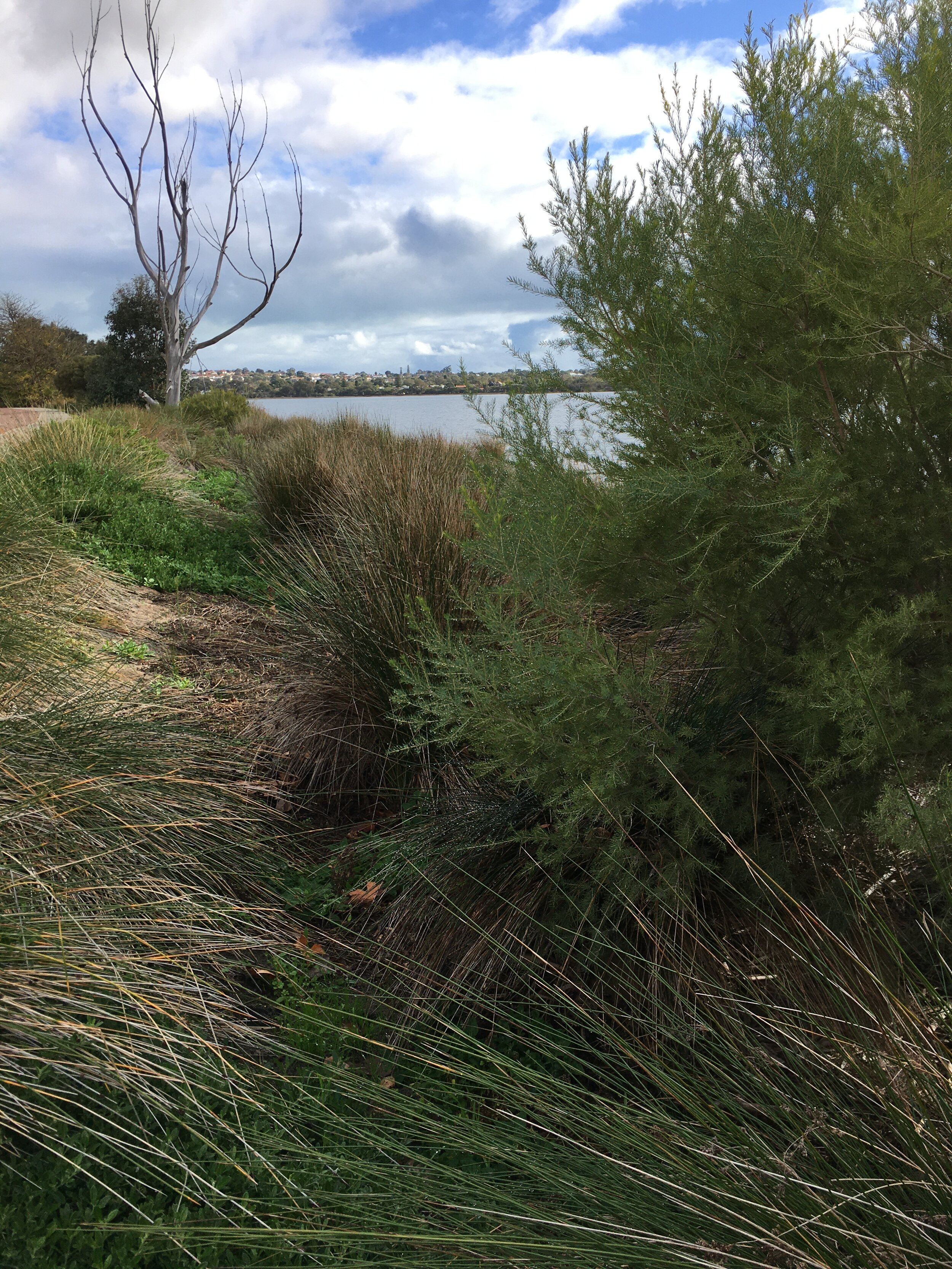
Milyu
Map via parks.dpaw.wa.gov.au
Over recent years SERAG has worked closely with DBCA to restore and strengthen this narrow, highly vulnerable A-Class Nature Reserve next to the Kwinana Freeway in South Perth.
SERAG supports a long-term project funded by the Department of Transport and coordinated by DBCA to address erosion at Milyu by assisting in planting activities.
As the site is highly exposed to rubbish from storm-water drains, freeway traffic and recreational boating and fishing, a team of volunteers conducts a monthly litter collection along the foreshore and reserve.
Map via parks.dpaw.wa.gov.au
Pelican Point
SERAG has been restoring the Federally threatened Saltmarsh Community of plants on the Point itself, where it had been overtaken by Veldt grass, Pigface and other weeds. Funding from Swan Alcoa Landcare Program (SALP) in successive years has enabled extensive planting of sedges which have spread via rhizomes and seed and have assisted the uptake of Samphire by natural recruitment following an initial planting.
SALP funding has also supported a long-term bush care commitment to the part of Bush Forever Site 402 under the care of DBCA. This involves steadily replacing weeds with native vegetation and slowly removing the invasive woody species, Victorian tea-tree *Gaudium leavigatim and *Casuarina glauca both of which form monocultures to the exclusion of local vegetation. SERAG also believes in the need to implement communication strategies to inform the wider community of the enormous importance of the Reserve to wildlife.
One matter of critical importance has been the development of a comprehensive weed-management and bush-restoration plan that guides the steady improvement of vegetation which provides habitat for both local and migratory birds.
Apart from its small size and general degradation, increasing human disturbance has a concerning impact on the well-being of this Reserve.
With the removal (rather than replacement) of damaged sections of the fence which once protected the terrestrial section of the Marine Park, there has recently been a significant increase in the number of people - often with their unrestrained dogs - walking or jogging along the beach and up into the vegetation.
Unfortunately, they are not only disturbing resting and foraging birds, but are also deterring nesting by shorebirds, which use simple shallows in the beach sand.
Kite-surfers, too, who inadvertently stray into the Reserve have significantly discouraged use of the Marine Park by birdlife, who confuse them with large predatory birds.
Community information strategies and infrastructure improvements will hopefully help to redress this problem.
Erosion is also currently a major threat to the terrestrial section of the Marine Park.
We are fortunate to have developed close ties with students studying at the University of Western Australia, which is adjacent to Pelican Point. Monthly bush care sessions are organised and well-attended by students keen to help maintain this unique and vulnerable area.
Funding through the Swan Alcoa Landcare Program (SALP) has seen a steady improvement in the health of vegetation, and the installation of a nesting platform for resident osprey. The platform was designed and constructed by local sculptor Tony Jones, using a light pole donated by DBCA, and recently 'upgraded' to include a cane basket woven by local artist Fiona Gavino, and a perch cantilevered beneath.
Artificial nesting boxes for micro-bats and Striated Pardalotes have been installed with great success.
Current restoration efforts are supported by funding from the Swan Alcoa Landcare Program.
Before & After
Osprey Tower Site - 2013 (L) and 2017 (R)
In the ‘after’ photo, native sedges in the foreground have replaced the South African Watsonia plants, and the River Gum in the background is thriving now, with native understory instead of the previous weedy understorey.



























Future Conservation Efforts
There is still much to be done in the three A-Class Nature Reserves in the Swan River Estuary, as well as in adjacent areas that impact on or support the health of the reserves. SERAG will continue to facilitate restoration projects through the contribution of volunteer work and the mobilisation of other community resources.
Please consider devoting some time or resources to our conservation efforts.

